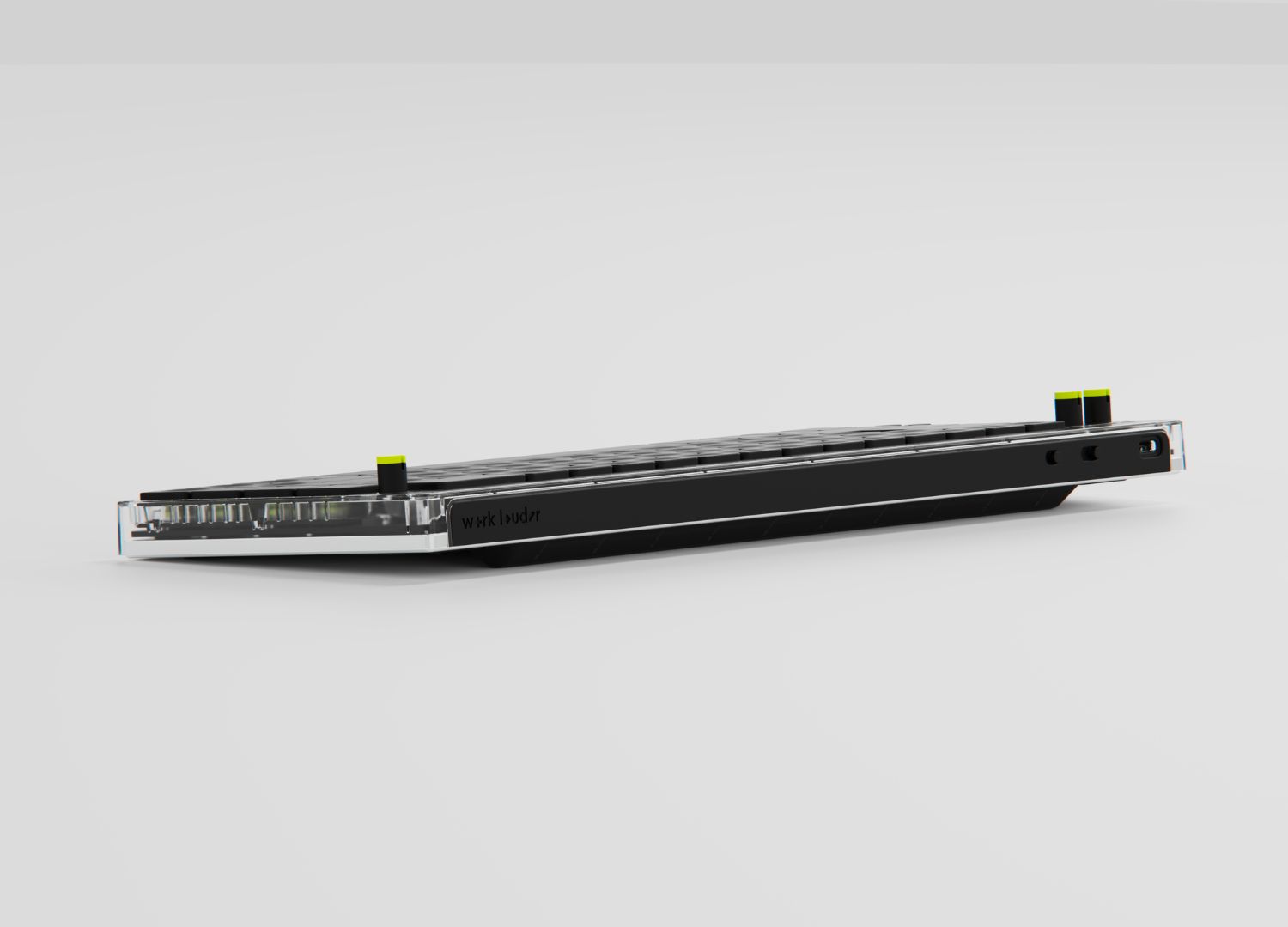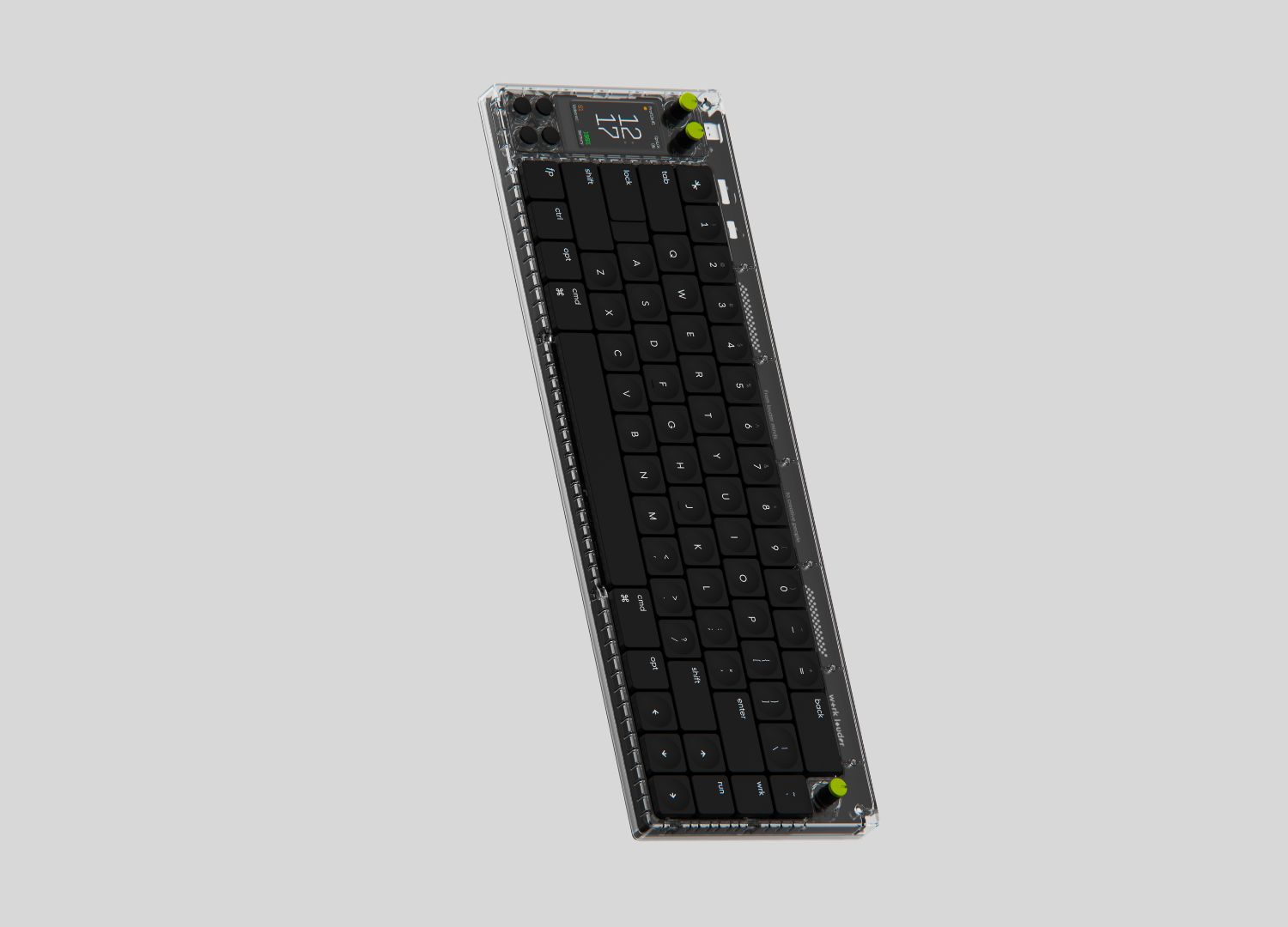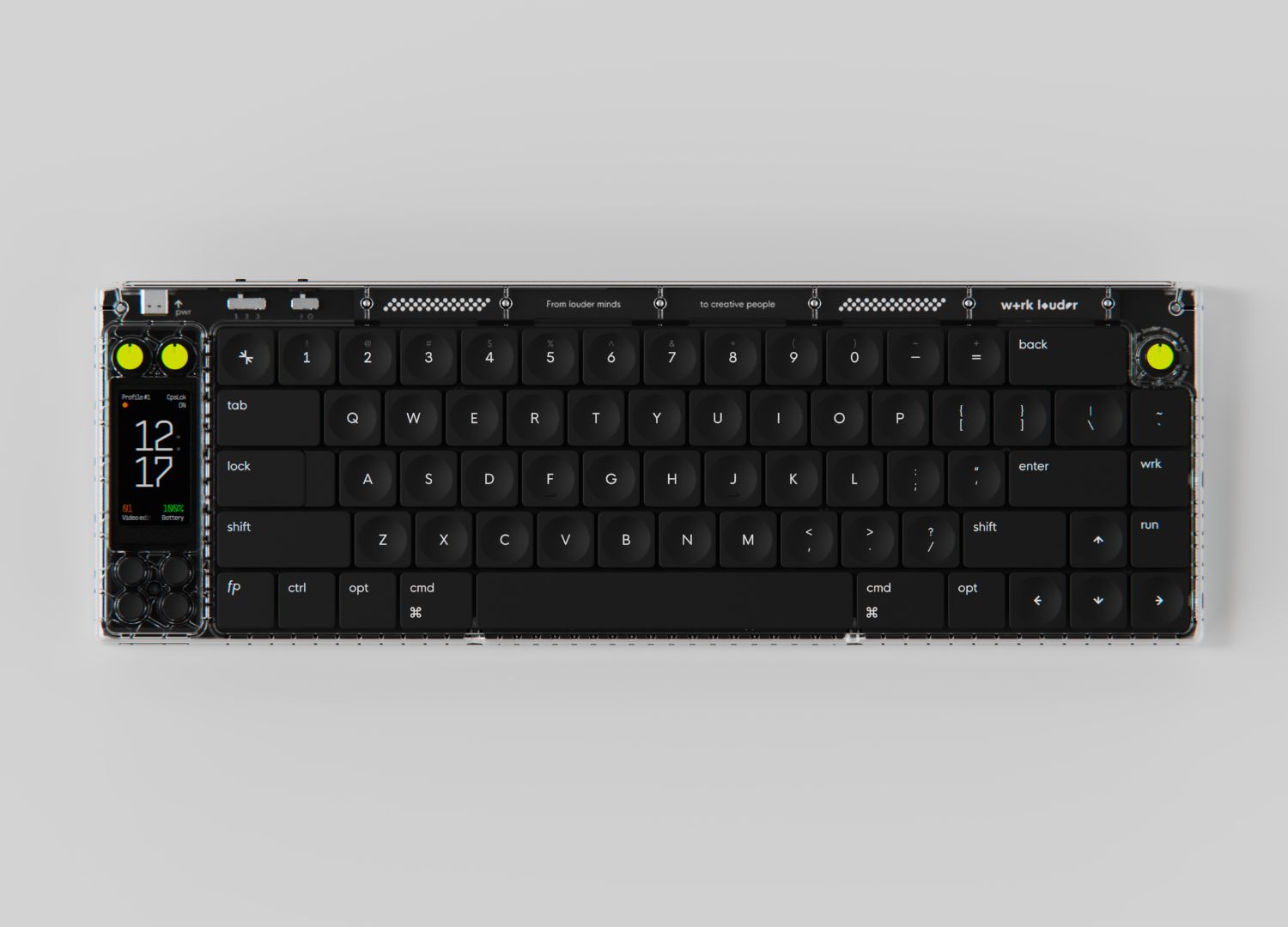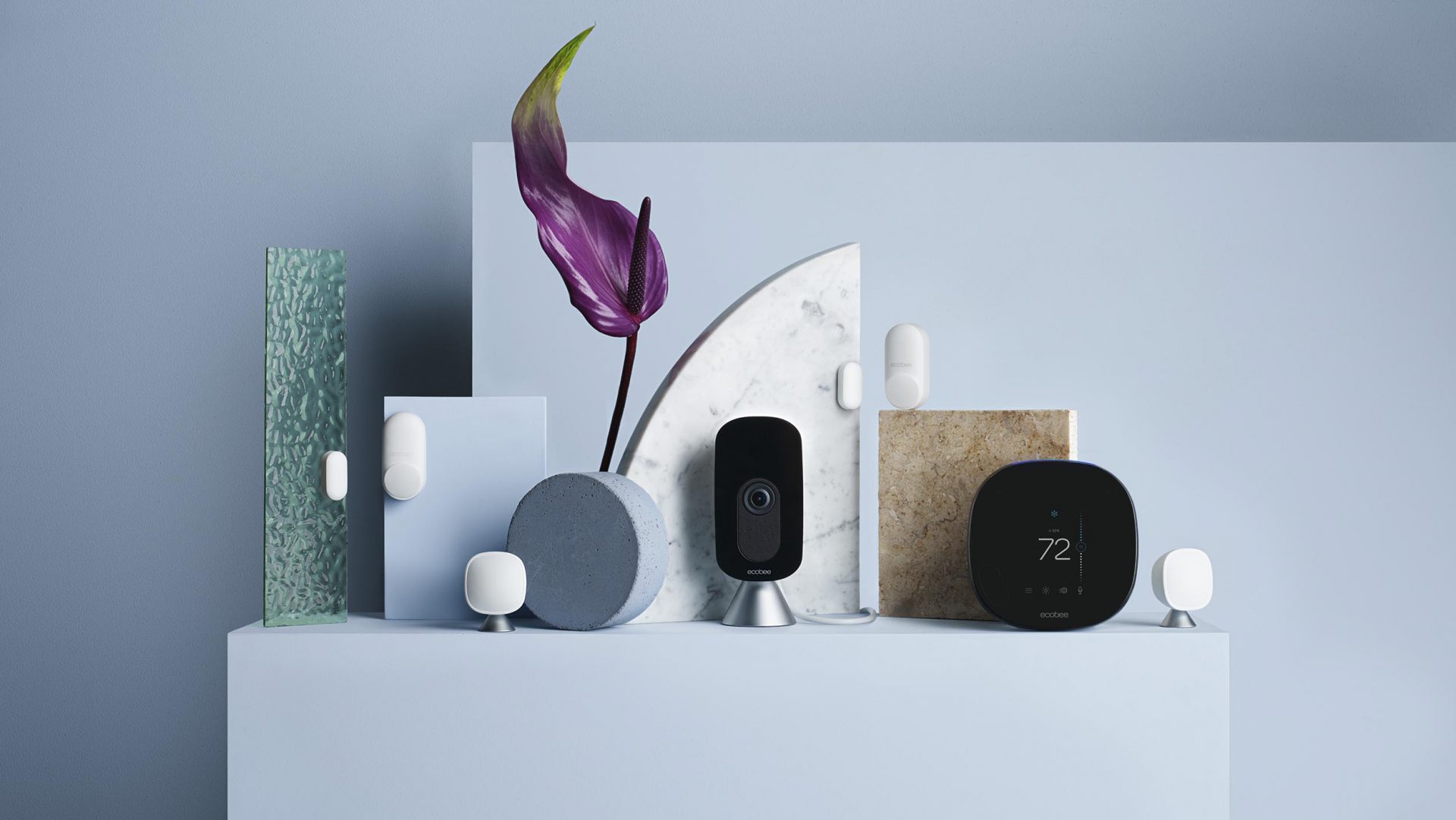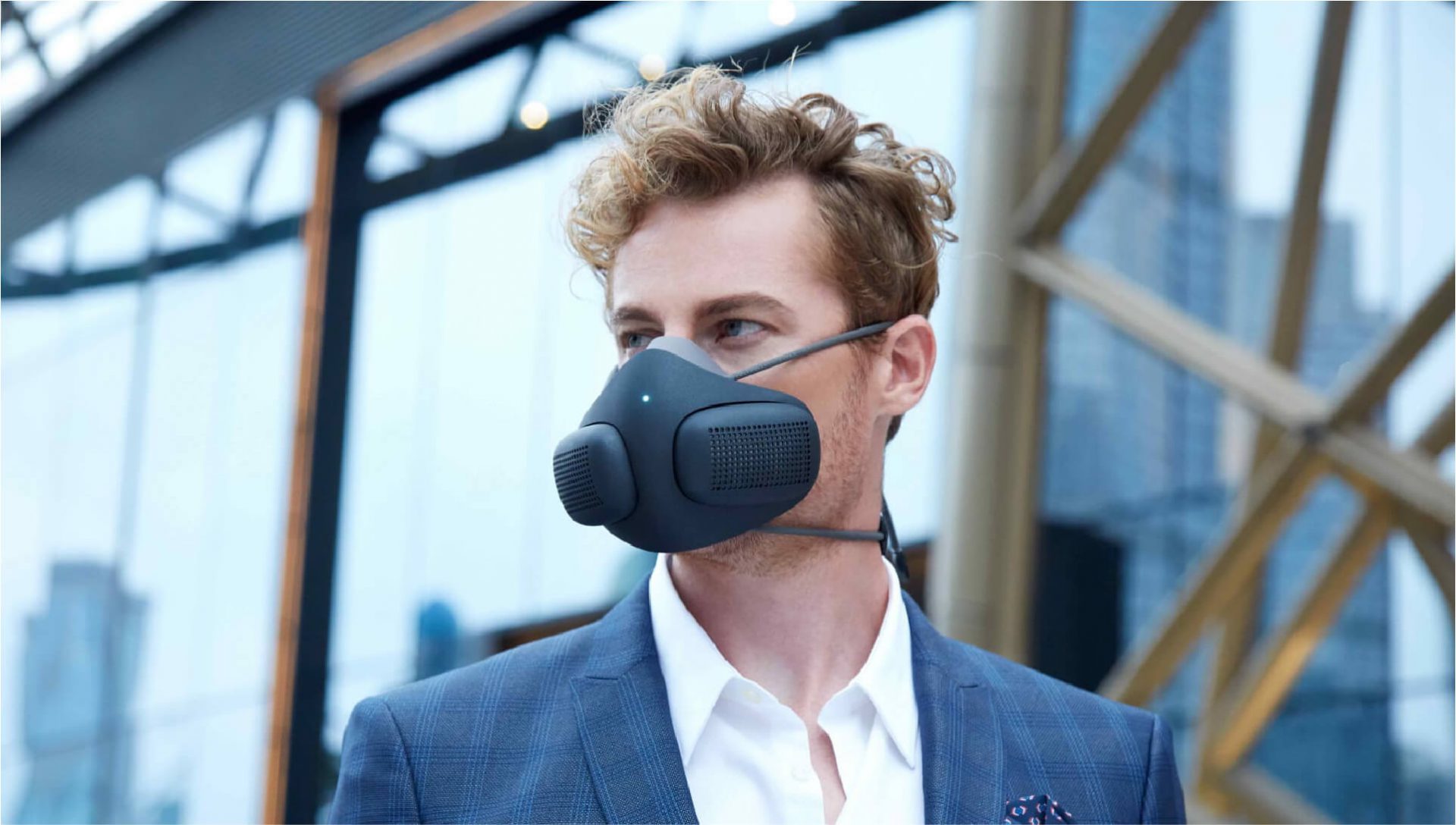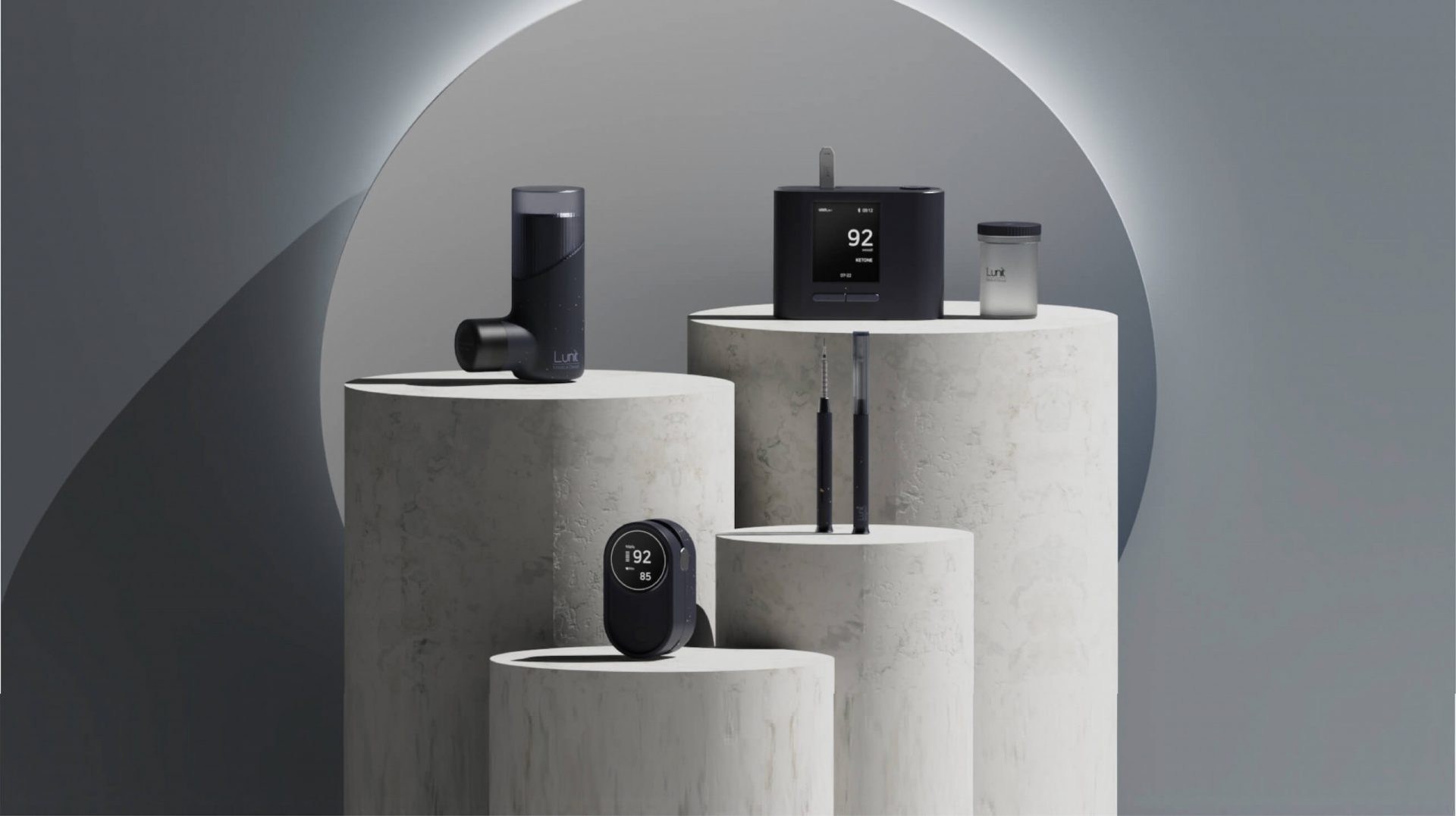How to work more efficiently: the remarkable tale of a Keyboard
The desire for innovation and a willingness to break from convention in a product category that’s typically seen as a mere plastic shell around a motherboard is truly captivating
![Work Louder _ Nomad [e] keyboard](https://designwanted.com/wp-content/uploads/2023/09/Work-Louder-_-Nomad-e-keyboard-cover.jpg)
Over the past few months, my interest in designer work gear has grown significantly. Here’s a fun anecdote: a couple of years ago, I was assembling my computer and needed a good mouse and keyboard. This marks the beginning of my introduction to Work Louder.
Without much thought, I went to a local store and purchased the most expensive ones available. Why? Well, I spend at least half of my day on the computer, and I wanted the best to enhance both comfort and performance. After all, spending so much time on a bad keyboard is as futile as sleeping on an uncomfortable bed. So, I applied the same logic here – if I use it extensively, it needs to be top-notch.
Gallery
Open full width
Open full width
I invested in products from two renowned brands, both of which were quite pricey, and to my dismay, the results were terrible. These products had design flaws, material issues, connectivity problems – you name it. Moreover, I felt zero emotional attachment to them. In contrast, when I see my recently purchased BMW parked, I admire it like it’s the first time. Yet, with these two items, there’s no such connection.
This led me to explore the market for innovative alternatives, something that wasn’t offered by mainstream brands. The internet started inundating me with fresh and innovative keyboard options from smaller manufacturers. I stumbled upon a subculture that, to me, seemed underground but was, in reality, populated by a substantial community seeking innovation in this field.
![Work Louder _ Nomad [e] keyboard](http://designwanted.com/wp-content/uploads/2023/09/Work-Louder-_-Nomad-e-keyboard-5.jpg)
However, I couldn’t quite grasp the enthusiasm behind this trend. It was a latent desire that surfaced only when I encountered this plethora of unique options. Previously, it hadn’t even registered as a concern for me.
In such cases, the best course of action is to inquire further. So, I reached out to Mike Di Genova, one of the co-founders of Work Louder, a tech company based in Canada. They recently achieved success on Kickstarter with their second keyboard, the Nomad-E, following the triumph of their first, the Creator Board.
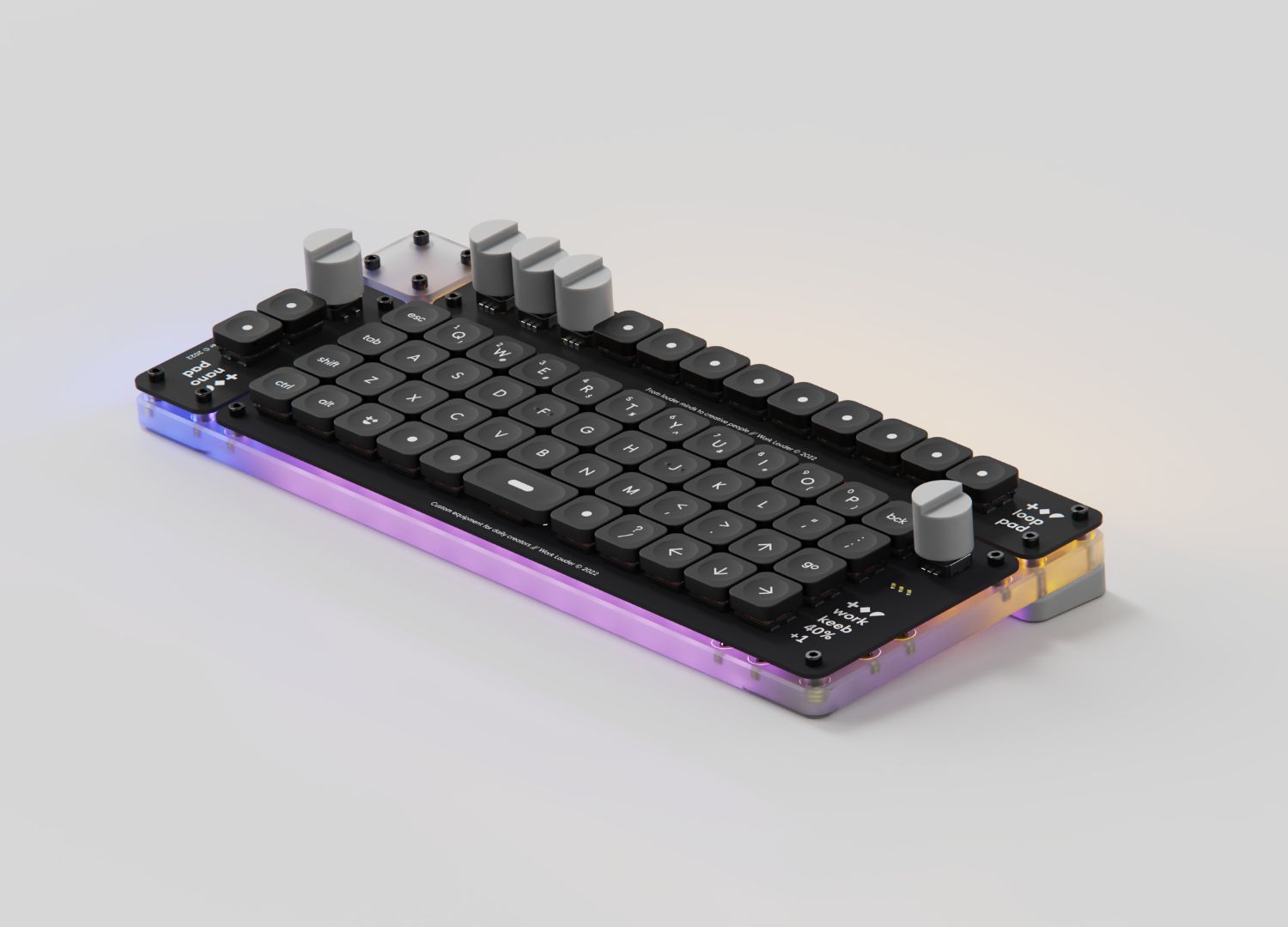
To truly understand why Work Louder is dedicated to producing keyboards, you must hear their story; otherwise, their motivation remains elusive.
Mike’s journey resembled mine – he was searching for the perfect keyboard. During his quest, he stumbled upon Mattia Caramel’s Instagram profile. Mattia, now the other co-founder, was then a designer sharing his creations on Instagram. Among them was what later became the Creator Board, initially just a concept. The concept was so captivating that Mike proposed joining forces to bring it to life.
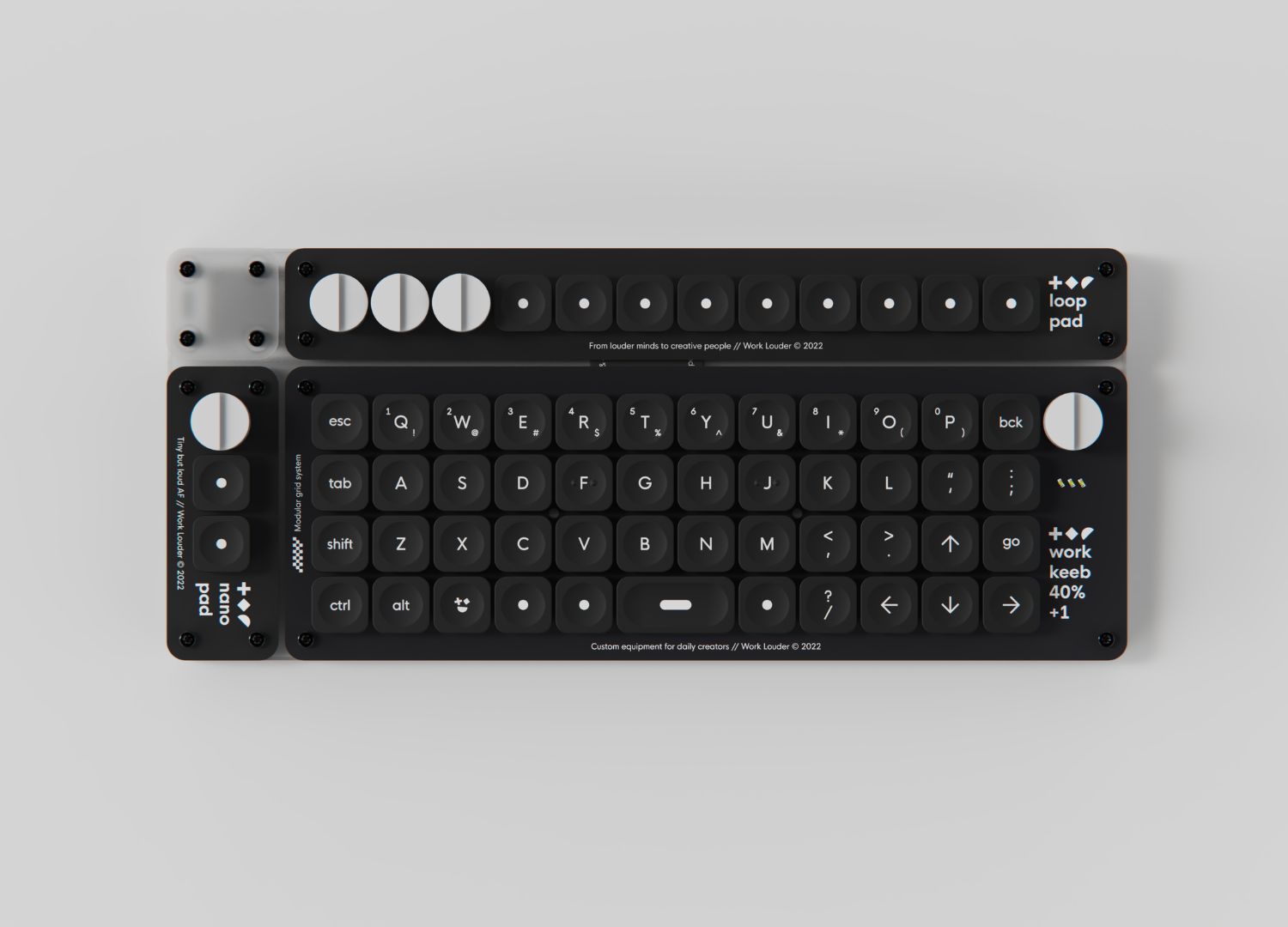
This collaboration was quite an adventure. They worked remotely, with Mike in Canada and Mattia in Italy. It took over a year before they could meet in person, largely due to the challenges posed by the pandemic. Such is the power of the internet.
While discussing their mission with Mike, he explained that they had a clear goal in mind. The keyboard is the tool, but their objective is to help people concentrate on their work.
For instance, the Creator Board by Work Louder features a knob dedicated to the “undo” and “redo” functions, essential for certain creative programs. Although these functions are accessible through keyboard shortcuts, having a physical knob for them is incredibly convenient – so simple that you might wonder why it wasn’t thought of sooner.
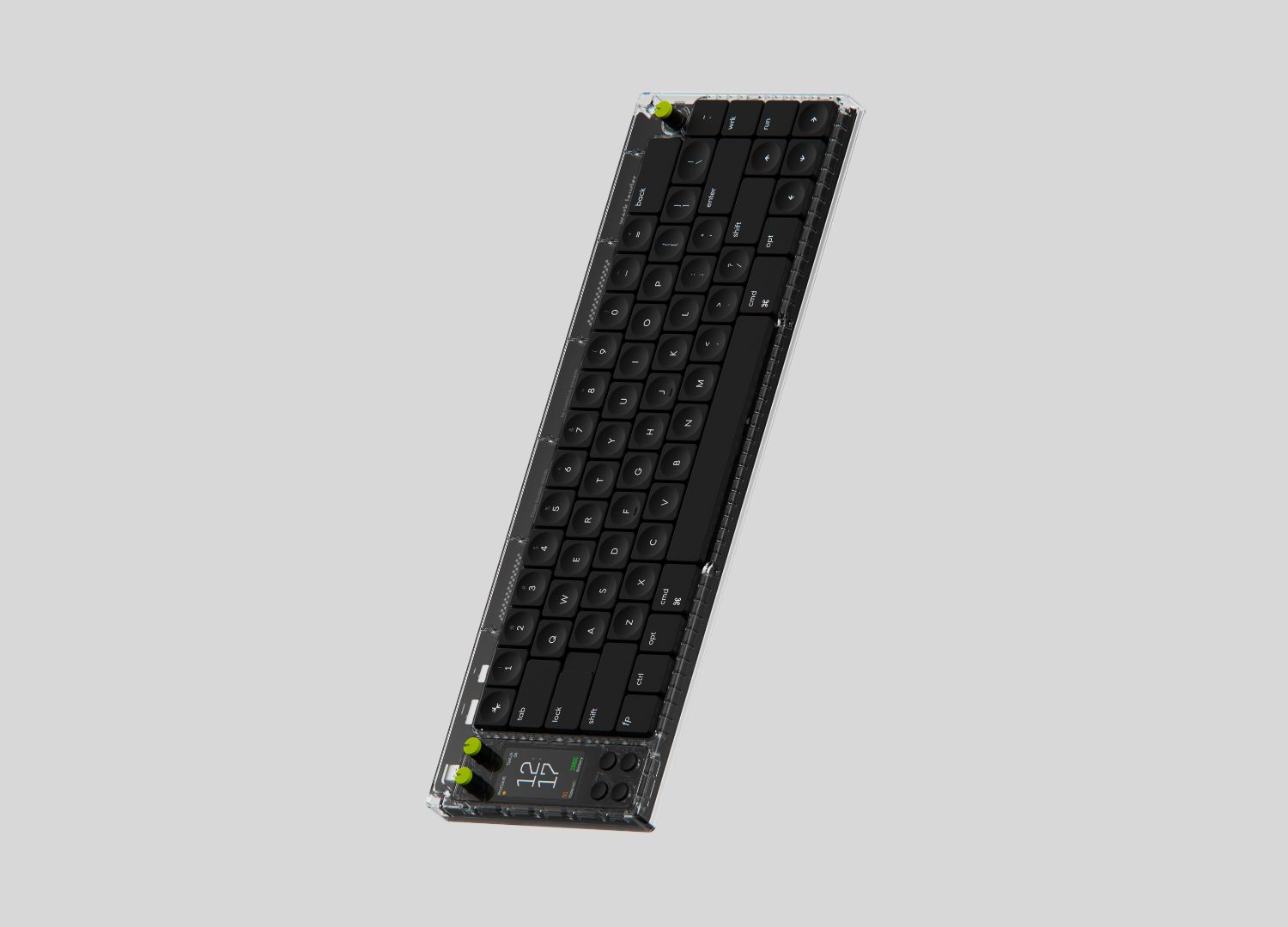
It’s a brilliant intuitive design because even though you can program a dedicated button on your existing keyboard, very few actually do it. That dedicated knob makes it effortless. It may seem simple, but it provides a thoroughly refined hardware-to-software user experience.
With their latest product, they continue to develop the “focus on work” concept, but in a more refined manner. Thanks to the success of their first keyboard, they had the opportunity to create a new one with improved design and user interaction.
Their mantra is clear: people’s actions will show you want they want, long before they tell you.
This reflects their philosophy on multifunctional products. Take Apple’s touch bar, for instance; it can do just about anything. Yet, when something can do everything, it often ends up doing nothing effectively.

Work Louder realized this during more than a year of case studies. Instead of creating an aimless multifunctional screen, they opted for a small subset of well-thought-out widgets revolving around “focus” to launch with – pomodoro timer, a “kebogotchi” companion, and a trusty clock.
The developer community will be able to add to the widgets available on the Nomad E after the first batch ships out in Q1 2024.
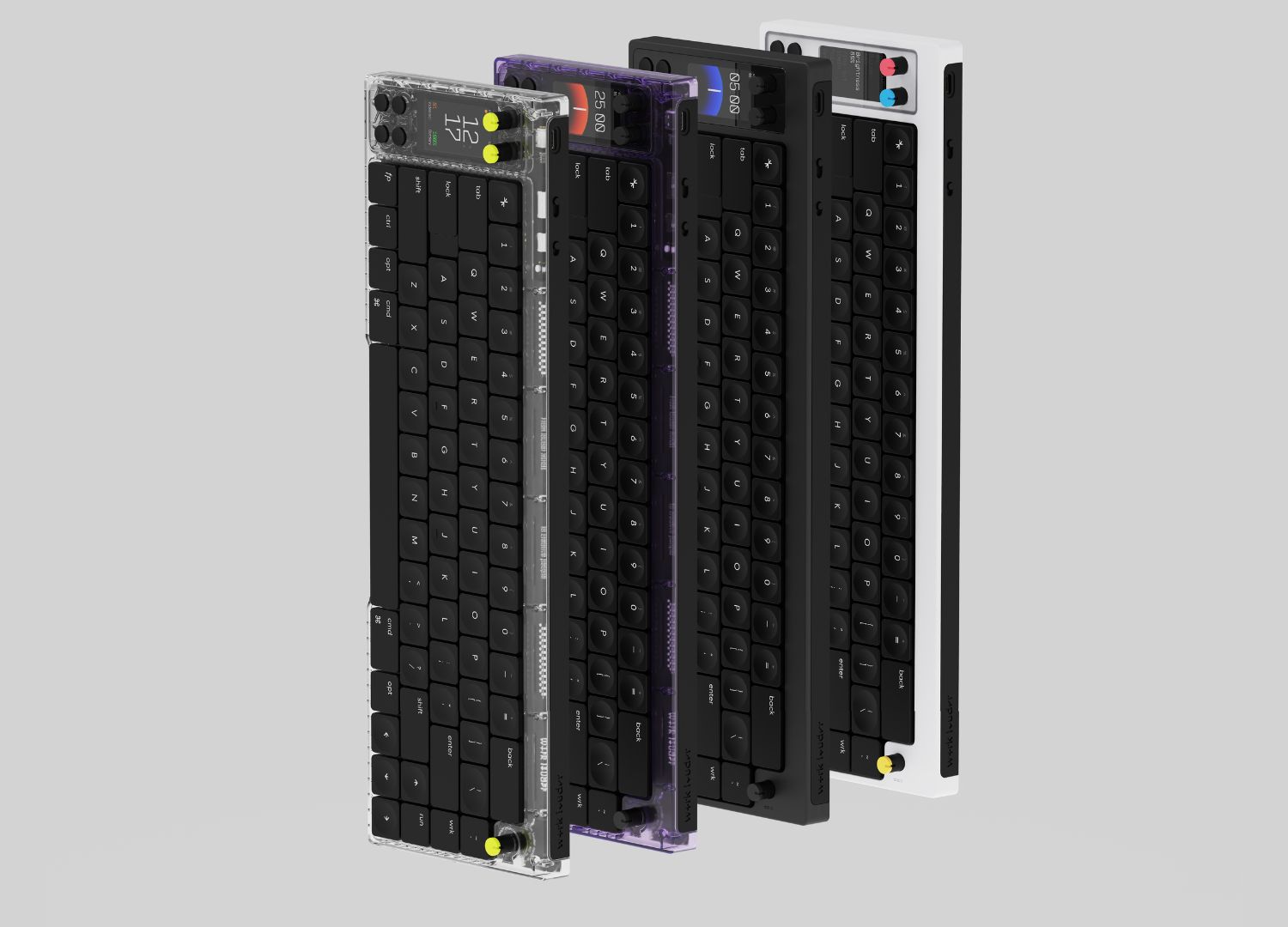
What excites me about this is that it mirrors the golden age of Italian design, when companies explored new forms and lifestyles. The desire for innovation and a willingness to break from convention in a product category that’s typically seen as a mere plastic shell around a motherboard is truly captivating. It seems like we’re entering a new era of independent design.


